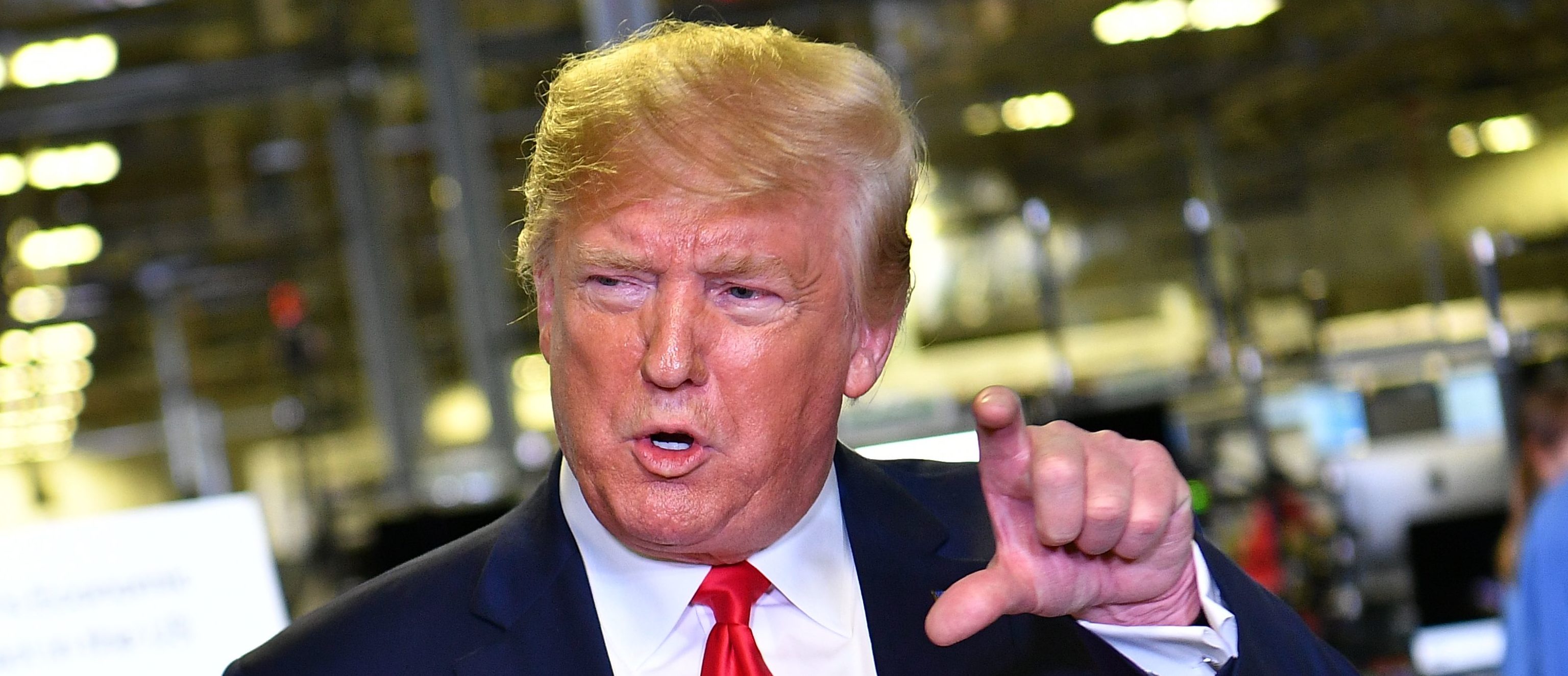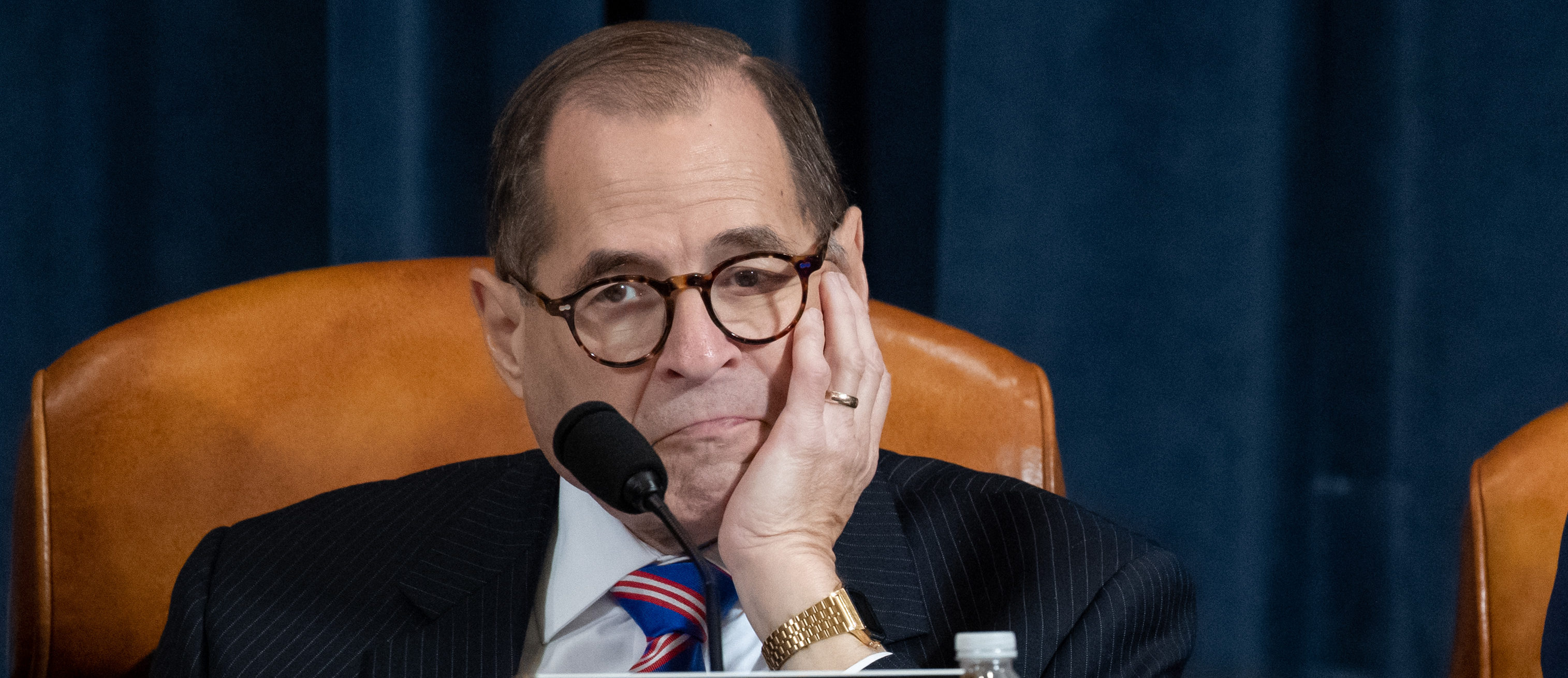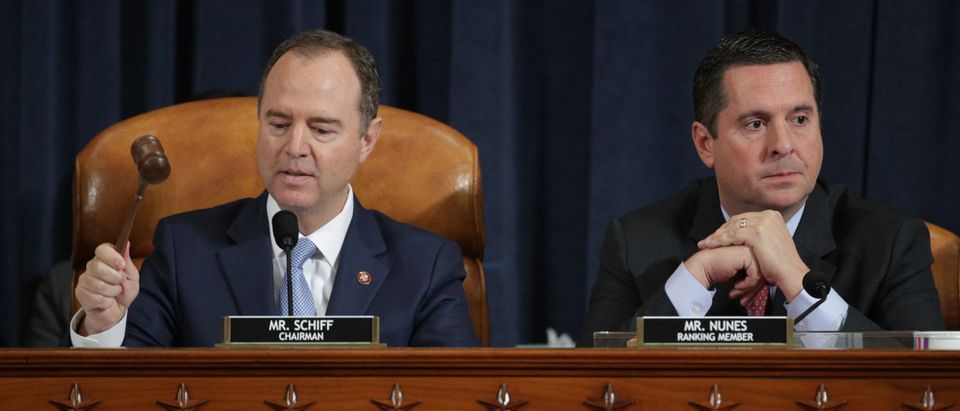Although Washington Post media columnist Margaret Sullivan claimed Thursday “the diplomats have been inspiring” in the impeaching hearing coverage, she thinks more should be done to convince Americans that “President Trump should be impeached and removed from office,” namely simplifying coverage to reach undecided Americans.
In a Thursday op-ed, Sullivan suggested there is too much impeachment news out there, too many hours of questions and answers and too many undecided citizens, especially among Republican voters.

US President Donald Trump speaks about the impeachment inquiry during a tour of the Flextronics computer manufacturing facility where Apple’s Mac Pros are assembled in Austin, Texas, on Nov. 20, 2019. (Photo by MANDEL NGAN / AFP) (Photo by MANDEL NGAN/AFP via Getty Images)
House Speaker Nancy Pelosi announced Thursday that the House Judiciary Committee would be moving forward with articles of impeachment against the president. (RELATED: Democrats Stack Judiciary Impeachment Hearing With Anti-Trump Lawyers)
“So, is the media coverage pointless? Are journalists merely shouting into the void?” she asks.
Sullivan argued that they won’t be if the material is simplified for the public in the same way as Hollywood produces trailers for films that distill an entire motion picture down it onto a a minute or so.
She cited an opinion piece from five thirty eight.com that pursues this option.
“Studios spend a $1 million or more on a trailer, because they know it’s essential to boil down the essentials of the film — explaining but not giving away the plot, providing a quick but intense insight into the characters, setting the scene with vivid imagery — to entice people to come back to the theatre a month later for the full movie.”
Sullivan noted that most people are simply not up to watching “seven hours … of congressional testimony.” (RELATED: Pro-Impeachment Witness Karlan Walked Across The Street To Avoid Trump’s Name)

Chairman Jerrold Nadler (D-NY) and ranking member Doug Collins (R-GA) listen during testimony by constitutional scholars before the House Judiciary Committee in the Longworth House Office Building on Capitol Hill December 4, 2019 in Washington, DC. (Photo by Saul Loeb-Pool/Getty Images)
But the WaPo columnist suggested the public could endure and comprehend a quick synopsis of the day’s events as interpreted by the right sort of journalist.
“With that in mind, I would also very much like to see one other major change: a moratorium on the reflexive use of the word ‘partisan.’” She claimed journalists tend to hide behind that word because it enables them not to take sides and be “inoffensively neutral.”
Therefore, she argued, it is time “in this moment” to tell Americans what the facts are.
”But here’s the thing: There are facts. There is truth. We do live in a country that abides by laws and a Constitution, and nobody ought to be above them.”
Journalism’s task is to reach those “members of the public [that] are still uncertain. Some are persuadable, and yes, it maters.”
“Maybe, just maybe, it’s the job of American journalism in this moment to get serious about trying to reach these citizens.”


